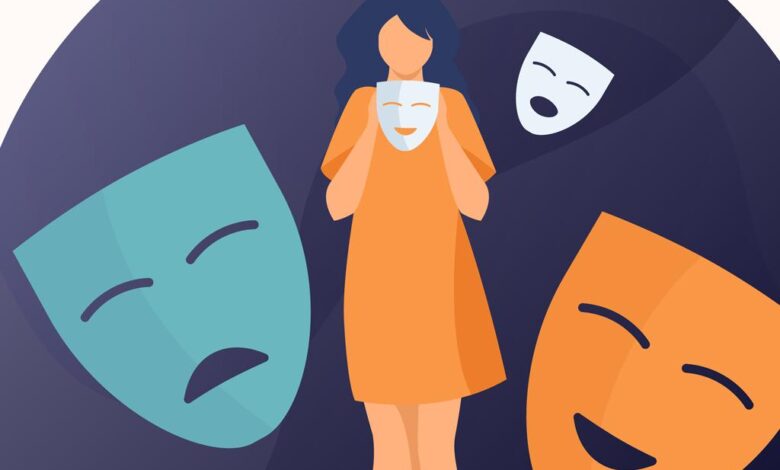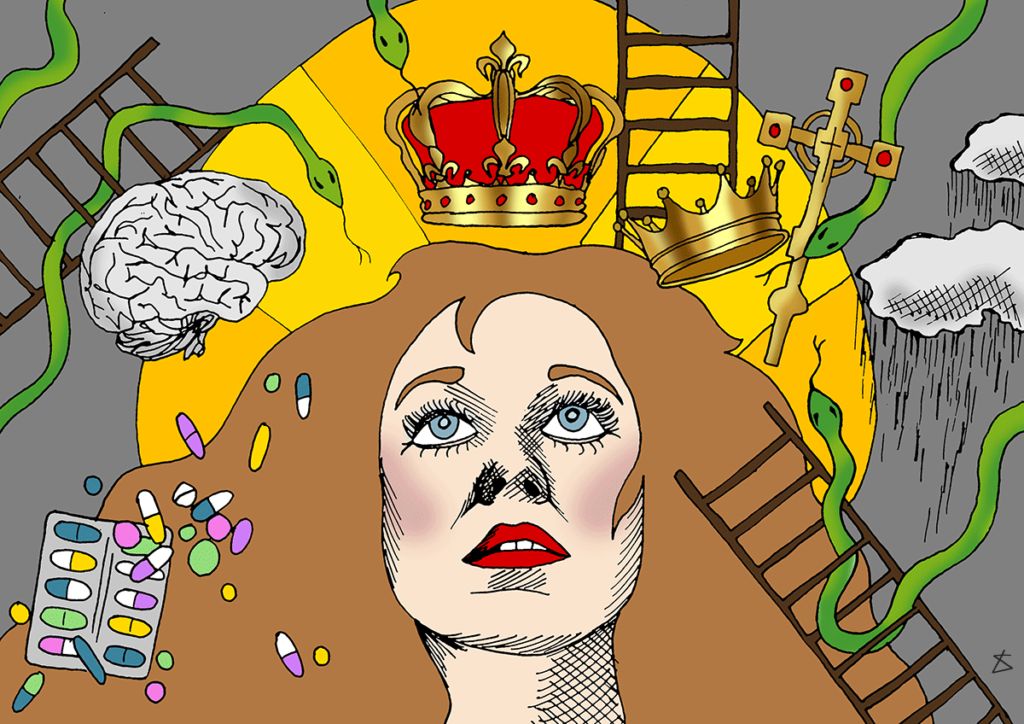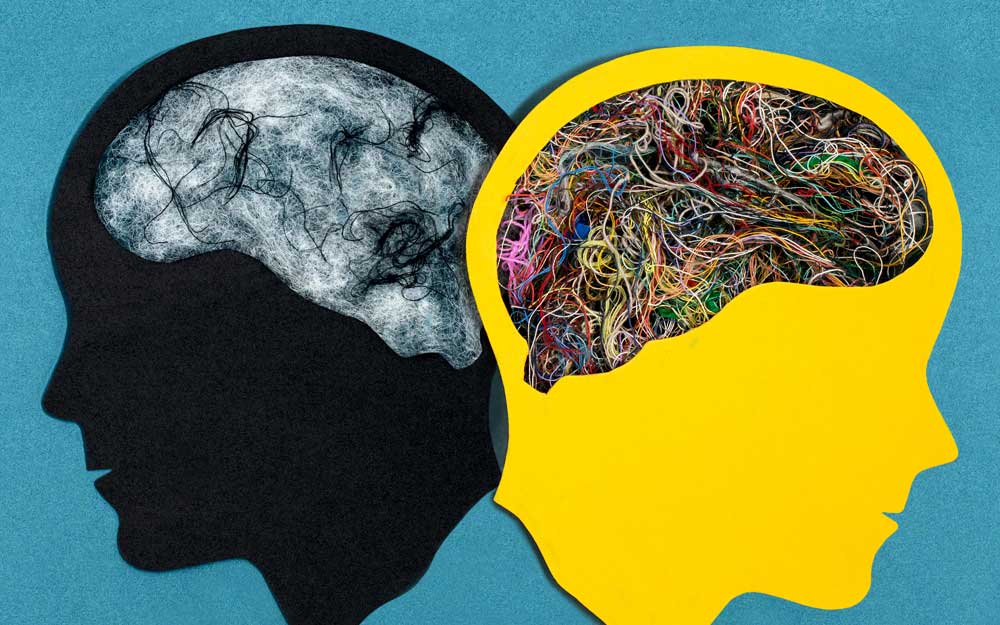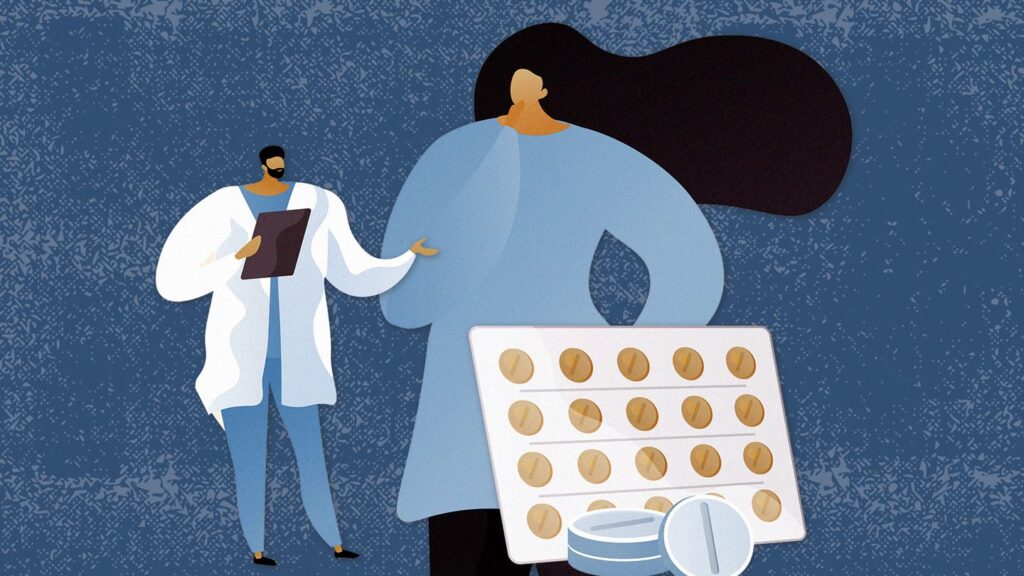Managing A Manic Episode With Bipolar Disorder

Hypomania and mania are mental illnesses that cause a person’s mood to shift dramatically. They could also be signs of other illnesses, the most prevalent of which being bipolar disorder. It’s critical to understand the difference between hypomania and mania. Hypomania is less severe than mania, despite both having sudden and strong mood fluctuations.
Hypomania usually lasts for four days or more. In certain cases, its symptoms can interfere with daily functioning, but this interference is usually minor, whereas mania, on the other hand, requires symptoms to endure at least one week and to be severe. Symptoms of mania almost always interfere with regular activities.
If you’re experiencing a manic episode, you may need to be hospitalized in some situations, however, when it comes to hypomania, this is almost never the case. This article examines strategies for dealing with these severe fluctuations in mood and preventing them in the future.
What Is Mania?

Mania is a symptom of bipolar disorder type 1. During a manic episode, you may experience the following:
- unusually upbeat mood
- a constant state of irritability
- exceptionally energized state of mind
The DSM-5 is a medical reference book used by doctors to help them diagnose patients. Unless you’re hospitalized, your symptoms of mania must endure at least a week to be termed a manic episode, according to this reference. If you’re hospitalized and effectively treated, your symptoms may last less than a week.
During an episode, your behavior differs significantly from that of a regular person. While some people are naturally more active than others, those suffering from mania have excessive energy, impatience, or even goal-directed conduct.
During a manic episode, you may also experience the following symptoms:

- delusions of self-importance and exaggerated self-esteem
- feeling as though you don’t need sleep or only need a few hours
- becoming too chatty
- racing thoughts
- the tendency to be easily distracted
- engaging in high-risk activities such as shopping sprees, sexual transgressions, or large-scale business ventures
Mania has the potential to trigger psychosis, which indicates that you have lost contact with reality. These episodes are serious and should not be taken lightly as they have an impact on your capacity to function normally at work, school, and in social situations. To avoid harming themselves, someone undergoing a manic episode may need to go to the hospital.
How To Manage An Episode
Manic episodes differ from one person to the next. Some people are aware that they are on the verge of a manic episode, while others deny the severity of their symptoms.
You may not recognize you’re having a manic episode if you’re experiencing it in the heat of the moment. As a result, planning ahead may be the best method to deal with it. Here are some things you can do to ready yourself.
1. Touch Base With Your Medical Team

If you believe you are experiencing manic episodes, the first and most critical step is to contact your mental health physician. A psychiatrist, psychiatric nurse practitioner, counselor, social worker, or other mental health professional could be involved in this.
If you think you’re on the verge of a manic episode, make an appointment with your mental health practitioner as soon as possible to discuss your symptoms.
If you have a family member or loved one who is familiar with your condition, they may be able to assist you in receiving support. Visit this page to learn about the value of having a therapist to help you manage this condition.
2. Determine Which Drugs Are Effective
Antipsychotic medications are commonly used to treat acute manic episodes by healthcare providers. These medications can alleviate manic symptoms faster than mood stabilizers. Long-term use of mood stabilizers, on the other hand, can help prevent recurrent manic episodes.
If you’ve previously taken these prescriptions and have a good grasp of how they work for you, you might want to keep a medication card. You could also have it recorded in your medical file.
3. Avoid Situations That Exacerbate Your Mania

Alcohol, illegal narcotics, and mood-altering prescription medicines can all cause a manic episode and make it difficult to recover. Avoiding these substances can assist you in maintaining emotional equilibrium. It might also make recuperation go more smoothly.
4. Maintain A Consistent Eating And Sleeping Routine
It’s critical to have structure in your daily life if you have bipolar disorder. This includes eating a balanced diet and avoiding coffee and sugary foods, which can have a negative impact on your mood. Getting adequate sleep on a regular basis can also help you avoid mania or depression. It can also assist to lessen the intensity of any episodes that do arise.
5. Keep A Close Eye On Your Finances

One of the most common signs of mania is going on shopping sprees. You can deal with this by limiting your financial accessibility. Keep enough cash on hand to maintain your daily routine around the house, but don’t have any additional cash on hand.
You might also wish to keep credit cards and other forms of payment in places that are more difficult to access. Some people find it beneficial to lend their credit cards to a trusted friend or family member, while others choose to avoid getting credit cards at all.
6. Create Daily Alerts
Make a habit of taking your prescriptions and going to bed at the same time every night. Consider setting up phone or computer notifications to help you stay on track.
How To Prevent An Episode In The Future

Maintain your healthy lifestyle once you’ve recovered. This includes physical activity, which can help with both mood and sleep. Develop a toolkit of methods to help you decrease the severity of future episodes:
- Take note of what makes you feel stressed. Your mood can be affected by a variety of factors, including your employment or someone you interact with.
- Consider what might have been early warning indicators in past occurrences. Was the lack of sleep for a few nights an early warning sign? Tell your loved ones about the red flags so they can be on the lookout for them as well.
- Keep track of your emotions on a daily basis. You and your doctor or therapist can look for patterns if you keep a regular mood diary. What effects do medications, sleep patterns, and life events have on your mood?
- Once your mood has stabilized, consider how mania affects you in both positive and negative ways. Make a list of your ideas. When you’re inclined to dismiss the early signals of mania, you can remind yourself of the consequences.
The post is developed in partnership with BetterHelp.



